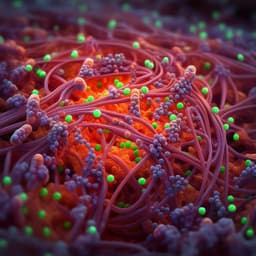
Medicine and Health
In vivo evolution of an emerging zoonotic bacterial pathogen in an immunocompromised human host
A. Launay, C. Wu, et al.
Discover the fascinating adaptive evolution of *Bordetella hinzii*, a zoonotic pathogen, in a patient with interleukin-12 receptor β1 deficiency. Researchers A. Launay, C.-J. Wu, A. Dualanto Chiang, J.-H. Youn, P. P. Khil, and J. P. Dekker reveal how genomic changes led to significant diversification and metabolic adaptations in the pathogen, highlighting the influence of the host's immune response on evolution after zoonotic infections.
~3 min • Beginner • English
Related Publications
Explore these studies to deepen your understanding of the subject.







